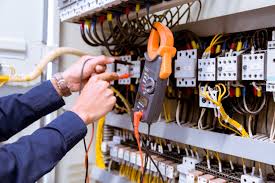In the ever-evolving landscape of the Canadian job market, skilled trades play a pivotal role in supporting the country’s infrastructure and development. Among these trades, electricians hold a crucial position, contributing to the construction, maintenance, and safety of various electrical systems. This article delves into the world of electrician jobs in Canada, exploring the opportunities available, the challenges faced, and the essential skills required for a successful career in this field.
Electrician Profession in Canada
Role and Responsibilities
Electricians in Canada are responsible for installing, maintaining, and repairing electrical systems in residential, commercial, and industrial settings. Their tasks range from wiring buildings and troubleshooting electrical issues to ensuring compliance with safety codes and regulations.
Demand and Growth
The demand for electricians in Canada has been consistently high due to ongoing construction projects, infrastructure development, and the need for regular maintenance and upgrades. With a growing population and increased reliance on technology, the demand for skilled electricians is expected to continue rising.
Educational and Certification Requirements
Apprenticeship Programs
To become a certified electrician in Canada, individuals typically enter apprenticeship programs. These programs combine on-the-job training with classroom instruction, allowing apprentices to gain practical experience while acquiring the theoretical knowledge necessary for the trade. Apprenticeships are often sponsored by employers or industry associations.
Certification and Licensing
After completing an apprenticeship, electricians must obtain certification through provincial or territorial regulatory bodies. Certification requirements may vary by region, but they generally include passing a qualification exam. Some provinces also require electricians to obtain a license to practice independently.
Opportunities for Electricians in Canada
Construction Industry
The construction industry is a major employer of electricians in Canada. As the country experiences ongoing urbanization and infrastructure development, there is a constant need for electricians to install wiring, lighting, and electrical systems in new buildings and construction projects.
Renewable Energy Sector
With the increasing focus on sustainable energy, there is a growing demand for electricians in the renewable energy sector. Electricians play a crucial role in installing, maintaining, and repairing electrical components of solar, wind, and other renewable energy systems.
Residential and Commercial Maintenance
Electricians are also in demand for the maintenance and repair of electrical systems in residential and commercial properties. As technology advances and smart home systems become more prevalent, electricians may find opportunities in upgrading and maintaining these sophisticated electrical setups.
Industrial Settings
Industries, including manufacturing, mining, and oil and gas, require electricians to ensure the smooth operation of machinery and electrical systems. Electricians in industrial settings may be involved in preventive maintenance, troubleshooting, and upgrading electrical components.
Challenges Faced by Electricians in Canada

ALSO READ: Canada Visa for Marriage – Everything you need to know
Aging Workforce
One of the challenges in the electrician profession in Canada is the aging workforce. As experienced electricians retire, there is a need for a new generation of skilled workers to fill the gaps. This has led to increased efforts to attract and train young individuals in the field.
Technological Advancements
While technological advancements present new opportunities, they also bring challenges. Electricians need to stay updated on the latest technologies, including smart home systems, automation, and renewable energy solutions. Continuous learning and adaptability are essential for electricians to remain competitive in the industry.
Work-Life Balance
The nature of electrical work, especially in construction and maintenance, can sometimes lead to irregular working hours and tight deadlines. Electricians may face challenges in maintaining a healthy work-life balance, and addressing these concerns is crucial for the well-being of professionals in the field.
Salaries and Compensation
The compensation for electricians in Canada varies based on factors such as experience, location, and specialization. On average, electricians can earn a competitive salary, and those with additional certifications or specializations may command higher wages. The cost of living in different provinces and territories also influences salary levels.
Future Trends and Innovations
Smart Technologies
The integration of smart technologies into homes and businesses is a trend that electricians need to embrace. Electricians who specialize in smart home installations, energy-efficient solutions, and automation are likely to see increased demand for their services.
Green Energy Initiatives
As Canada continues to focus on reducing its carbon footprint, electricians involved in the installation and maintenance of renewable energy systems are expected to be in high demand. This aligns with the global push towards sustainable and environmentally friendly practices.
Electric Vehicle Infrastructure
With the rise of electric vehicles (EVs), there is a growing need for electricians to install and maintain EV charging stations. The increasing adoption of electric vehicles across Canada contributes to the demand for skilled electricians in this niche sector.
Conclusion
In conclusion, electrician jobs in Canada offer a promising and dynamic career path for individuals with the right skills and qualifications. The demand for electricians spans various sectors, from construction and maintenance to renewable energy and smart technologies. While challenges exist, such as an aging workforce and the need to adapt to technological advancements, the future looks bright for those entering or already established in the electrician profession in Canada. As the country continues to grow and evolve, so too will the opportunities for skilled electricians to contribute to its development and sustainability.






